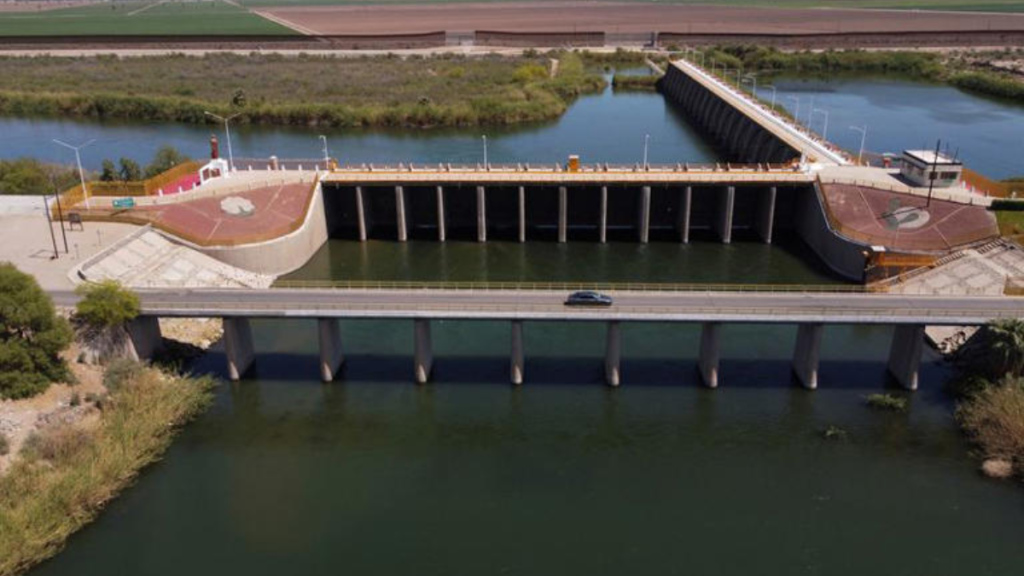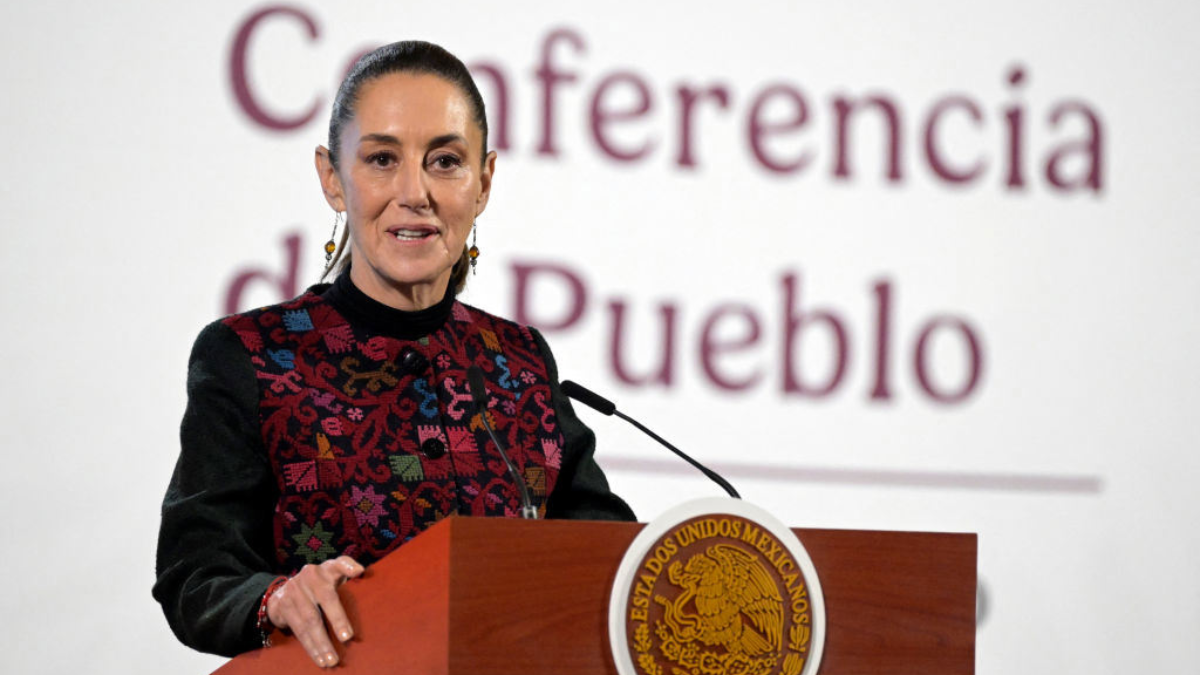Tensions between the United States and Mexico have intensified following former President Donald Trump’s warning of potential sanctions over delayed water payments. The issue stems from a longstanding international water treaty, and now, Mexican President Andrés Manuel López Obrador has pledged that Mexico will make “immediate” water payments to honor the agreement and avoid diplomatic fallout.
The controversy centers around the 1944 Water Treaty, a pivotal agreement that regulates how the U.S. and Mexico share water from the Rio Grande and Colorado River. Under this treaty, Mexico must deliver a specific amount of water to the U.S. every five years from rivers that flow through its territory.
In return, the U.S. sends water to Mexico from the Colorado River. The treaty has largely succeeded in balancing the needs of both nations for nearly 80 years.
However, in the current five-year cycle, Mexico has fallen behind, sparking frustration among U.S. farmers and political leaders, particularly in Texas, where communities depend on water from the Rio Grande for agriculture.
Trump, seizing on the issue, accused Mexico of failing to meet its international obligations and threatened that sanctions could follow if immediate action wasn’t taken.
López Obrador Promises Swift Resolution
Facing mounting pressure from across the border, President López Obrador responded by reassuring both the U.S. government and the Mexican public that water delivery will proceed without further delay.
Speaking during his daily morning press conference, López Obrador emphasized the importance of cooperation between the two countries and stressed Mexico’s intention to uphold its international commitments.
“We will not allow this matter to escalate,” López Obrador stated. “We are making arrangements for an immediate delivery of water to meet our obligations under the treaty.”
Mexican officials, including those in the National Water Commission (CONAGUA), are now working urgently with local authorities to release water from northern reservoirs to meet the required volumes.
The move comes amid growing protests in states like Chihuahua, where farmers fear water shortages for their own crops. Local disputes over water allocation have previously turned violent, with protesters seizing control of dams and clashing with federal forces.
U.S. Farmers and Lawmakers Raise the Alarm
In the United States, especially along the Texas border, agricultural producers are already facing the impact of lower-than-expected water deliveries. Irrigation districts that rely on flows from the Rio Grande have reported shortages, prompting concerns over crop yields and economic losses.
Texas Governor Greg Abbott and several Republican lawmakers have called on the Biden administration to take stronger action to enforce the treaty. Former President Trump, who remains a key figure in Republican politics, has amplified those demands by warning of sanctions if Mexico fails to deliver.
“This isn’t just about a treaty—it’s about fairness,” Trump said in a recent statement. “Texas farmers are suffering, and Mexico needs to live up to its promises or face consequences.”
While the Biden administration has not echoed Trump’s rhetoric, State Department officials are reportedly engaged in diplomatic efforts to de-escalate tensions and keep the situation from boiling over.
Analysts believe the administration is seeking a behind-the-scenes resolution that avoids conflict while ensuring treaty compliance.
Treaty Challenges in a Changing Climate
The current dispute also highlights larger concerns about water availability in a warming climate. As drought conditions persist across North America, both the U.S. and Mexico are struggling to meet water demands with shrinking supplies. In this context, long-standing treaties like the 1944 agreement are being tested in new ways.
“The treaty has been remarkably durable, but climate change and population growth are introducing new stresses,” said Dr. Miguel García, an expert in transboundary water policy at the University of Arizona. “Both countries will need to adapt and modernize how they implement these agreements.”
Environmental groups have called for more transparent reporting and real-time data sharing between both governments to ensure accountability and sustainability. They warn that if the treaty continues to generate conflict, public trust in water management institutions on both sides of the border could erode.

Will the Crisis Be Resolved?
Despite the urgency surrounding the current situation, some experts are optimistic that a crisis can be averted. Mexico has a history of honoring its treaty commitments, even when local political tensions run high.
President López Obrador’s public commitment to deliver the water swiftly is seen as a sign that Mexico wants to preserve its diplomatic relationship with the U.S., especially during a time of economic interdependence and regional cooperation.
“Mexico understands the stakes,” said Dr. Ana Ramos, a political science professor in Mexico City. “The relationship with the United States goes far beyond just water. López Obrador is trying to show that he can stand up to domestic pressure while being a responsible international partner.”
Conclusion
As the deadline for treaty compliance nears, all eyes are on how quickly Mexico can deliver the water it owes and whether the U.S. will respond with further demands.
While former President Trump’s threats have brought renewed attention to the issue, diplomatic channels remain open, and President López Obrador appears committed to resolving the matter without confrontation.
Still, the broader question of how water agreements will survive in an era of climate stress remains unresolved—and may require more than just short-term fixes.
For more details about the U.S.-Mexico water treaty and diplomatic discussions, visit the International Boundary and Water Commission (IBWC).
Disclaimer – Our team has carefully fact-checked this article to make sure it’s accurate and free from any misinformation. We’re dedicated to keeping our content honest and reliable for our readers.
